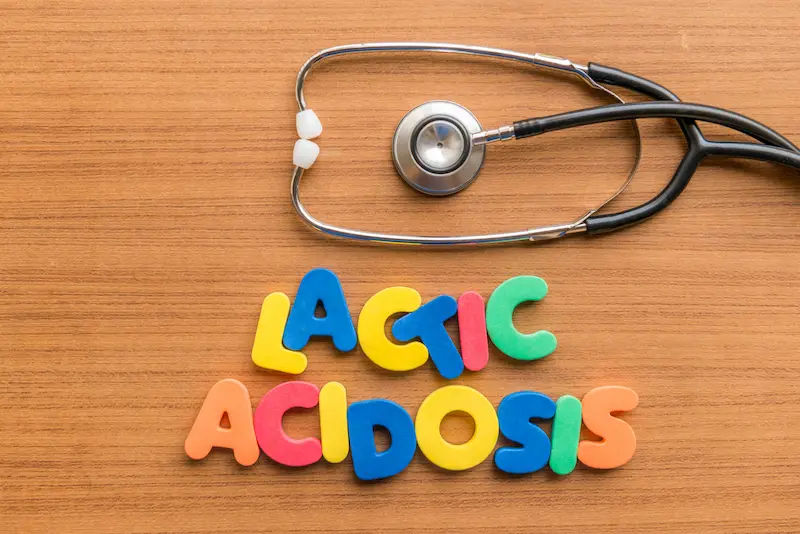10 Harmful Effects of Eating Too Much Sugar
Discover 10 sugar side effects and healthy diet tips. Cut added sugar to protect your heart, teeth, liver, and weight with simple, science-backed steps.

Written by Dr. Vasanthasree Nair
Reviewed by Dr. Mohammed Kamran MBBS, FIDM
Last updated on 13th Jan, 2026

Introduction
If you’ve ever wondered what too much sugar is really doing to your body, you’re not alone. Sugar is everywhere—hidden in drinks, sauces, cereals, snacks, and even foods promoted as “healthy”. Because sugar is so common, many people consume far more than they realise. While the body can handle small amounts, regularly eating or drinking high levels of added sugar creates long-term effects that go beyond weight gain.
Understanding sugar side effects empowers you to make informed choices. In this guide, you’ll discover the top 10 harms of excessive sugar intake, explained clearly and simply. You’ll also learn practical, healthy diet tips that help you cut back without feeling restricted, hungry, or deprived.
The goal is not to eliminate sugar but to understand how it affects your body and how to reduce it in a balanced, sustainable way.
Consult a Top Nutritionist for Personalised Advice
Sugar and Your Body: How Excess Intake Causes Harm
Added sugar gives the body energy, but without nutrients—no fibre, no vitamins, and no minerals. At the same time, it pushes the body into stress mode. Blood sugar spikes, followed by crashes, can affect your mood, hunger levels, hormones, energy, heart health, insulin, and weight.
Below are the top 10 effects of too much sugar on your body.
Let us find the top 10 effects:
1) Weight Gain and Increased Body Fat
Why it happens
- Added sugars contribute extra calories without helping you feel full.
- Sugary drinks are the biggest contributor—they’re quick to digest, and it’s easy to drink more than you intend.
- When blood glucose spikes rapidly after a sugary food or drink, insulin rises to push that glucose into cells. Over time, this can encourage fat storage, especially around the abdomen.
What research consistently shows
- Diets high in sugary drinks correlate strongly with weight gain and obesity risk.
- People who consume sugary drinks regularly tend to have higher calorie intakes overall.
What helps
- Swap sugary beverages with:
- Water or sparkling water
- Unsweetened herbal or black tea
- Fruit-infused water
Build meals around:
- Fibre (vegetables, fruit, whole grains)
- Protein (beans, yoghurt, lean meat)
- Healthy fats (nuts, seeds, avocado)
These foods help keep hunger under control.
2) Higher Risk of Type 2 Diabetes
Why it happens
- Frequent spikes in blood sugar and insulin can lead to insulin resistance, where cells don’t respond properly to insulin.
- Over time, the pancreas struggles to keep up, increasing the risk of type 2 diabetes.
What research consistently shows
Sugary drinks strongly correlate with a higher risk of diabetes, even when weight is considered separately.
What helps
- Prioritise whole, minimally processed foods.
- Choose whole fruit instead of fruit juice to benefit from the fibre.
3) Heart Disease and High Blood Pressure
Why it happens
Excess sugar can:
- Increase triglycerides
- Lower HDL (the healthy, protective cholesterol)
- Increase inflammation
- Raise blood pressure
These effects increase stress on the cardiovascular system.
What research consistently shows
High sugar intake is associated with increased risk of heart disease and heart-related mortality.
What helps
Check labels on:
- Breakfast cereals
- Condiments
- Flavoured yoghurts
Reduce sweetened drinks—they are the biggest contributor.
4) Non-alcoholic Fatty Liver Disease (NAFLD)
Why it happens
- Excess fructose (found in table sugar and high-fructose sweeteners) is metabolised only in the liver.
- Too much fructose can lead to fat accumulation in liver cells.
What research consistently shows
Regular intake of sugary drinks correlates with a higher risk of NAFLD.
What helps
Limit or eliminate:
- Soft drinks
- Fruit juices
- Sports or energy drinks
Replacing these with water can reduce liver fat over time.
5) Tooth Decay (Cavities)
Why it happens
- Sugar feeds bacteria in the mouth.
- These bacteria produce acid that wears down tooth enamel.
What research consistently shows
Higher sugar intake is strongly linked with dental caries across all age groups.
What helps
- Brush twice daily with fluoride toothpaste.
- Reduce sugary snacks between meals.
6) Unhealthy Cholesterol and Triglycerides
Why it happens
- Too much sugar increases triglycerides and shifts cholesterol toward a less healthy pattern.
- This contributes to heart and metabolic risk even if weight appears stable.
What research consistently shows
Reducing added sugar can improve cholesterol and triglyceride markers.
What helps
Replace sugary snacks with:
- Nuts
- Fruit
- Whole yoghurt without added sugar
Focus on whole, balanced meals.
7) Gout and Uric Acid Buildup
Why it happens
- Fructose increases the production of uric acid.
- High uric acid can lead to gout, a painful inflammatory arthritis.
What research consistently shows
Sugary drinks are associated with a higher risk of gout.
What helps
- Cut back on sugary drinks and large servings of juice.
- Drink more water to help the kidneys clear uric acid.
8) Skin Problems: Acne and Early Ageing
Why it happens
- High-sugar foods cause spikes in insulin, which may increase oil production and inflammation—two factors associated with acne.
- Excess sugar accelerates the formation of advanced glycation end-products (AGEs) that reduce collagen and elasticity over time.
What research consistently shows
High-glycaemic, sugar-heavy diets may exacerbate acne in some individuals.
What helps
- Prioritise whole grains, vegetables, fish, nuts, and seeds.
- Lower sugar intake for at least 6–8 weeks to notice skin changes.
9) Energy Highs, Crashes, and Increased Hunger
Why it happens
Sugary foods digest rapidly.
- This causes a sudden spike in blood sugar followed by a rapid crash.
- During a crash, the body craves more sugar, creating a cycle that drives overeating.
What research consistently shows
High sugar intake is associated with poorer appetite regulation and unstable energy throughout the day.
What helps
Build meals that include:
- Protein
- Fibre
- Healthy fats
These balance blood sugar and keep you fuller longer.
10) Lower Diet Quality and Nutrient Shortfalls
Why it happens
- High-sugar foods often push aside foods rich in fibre, vitamins, and minerals.
- When sugar displaces nutritious food choices, overall diet quality drops.
What research consistently shows
High added sugar diets correlate with lower intake of essential nutrients.
What helps
- Use the Nutrition Facts label to track added sugar.
- Aim for nutrient-dense foods most of the time.
Healthy Diet Tips: Practical Ways to Cut Added Sugar
These small daily habits can make a big difference:
- Replace sugary drinks with water or unsweetened tea.
- Choose plain yoghurt and sweeten it naturally with fruit or cinnamon.
- Gradually reduce added sugar in tea and coffee.
- Check labels for Added Sugars in grams and daily percentage.
- Prefer whole fruit over juice to increase fullness and fibre.
Pair snacks with protein and fibre, such as:
- Carrots + hummus
- Apple + peanut butter
- Nuts + fruit
- Cook more at home to avoid sugar-heavy sauces and dressings.
- Enjoy desserts mindfully, ideally later in the day rather than first thing.
Conclusion
Sugar is not inherently “bad”, but excess added sugar can harm your body in multiple ways, from raising diabetes risk to affecting your skin, teeth, liver, heart, and weight. The key is awareness. Once you begin reading labels and making small swaps, reducing sugar becomes easier and more automatic. You don’t need to eliminate every sweet treat—just shift your habits so sugar becomes an occasional pleasure rather than a daily routine. Small, consistent steps lead to lasting change, and your body rewards you with steadier energy, clearer skin, better digestion, and improved long-term health.
Consult a Top Nutritionist for Personalised Advice
Consult a Top Nutritionist for Personalised Advice

Ms. Samapti Maity
Dietician
16 Years • MSc. (Clinical Nutrition & Dietitics), NDEP, Course in Maternal Infant Young Child Nutrition.Diploma in Sports Nutrition, Diploma in Diabetic educator, FODMAP Specialist
Kolkata
BIENETRE CLINIC, Kolkata

Ms. Soma Saha
clinical nutrition
17 Years • B.Sc. - Home Science (Food & Nutrition), M.Sc. - Home Science (Food & Nutrition)
Kolkata
Dr Utsa Basu Clinic, Kolkata
(50+ Patients)

Ms. Suhita Sinha
Dietician
8 Years • BSC Food & Nutrition
Kolkata
Chikitsa Medicare Centre Pvt. Ltd.Sattelite Centre Behala Chowrasta, Kolkata

Ms. Sushma Jaiswal
Dietician
42 Years • M.Sc.(Food & Nutrition)
Bengaluru
Swasthya Nutrition, Bengaluru

Dr. Ramalinga Reddy
General Physician
5 Years • MBBS MD General medicine
Bengaluru
PRESTIGE SHANTHINIKETAN - SOCIETY CLINIC, Bengaluru
Consult a Top Nutritionist for Personalised Advice

Ms. Samapti Maity
Dietician
16 Years • MSc. (Clinical Nutrition & Dietitics), NDEP, Course in Maternal Infant Young Child Nutrition.Diploma in Sports Nutrition, Diploma in Diabetic educator, FODMAP Specialist
Kolkata
BIENETRE CLINIC, Kolkata

Ms. Soma Saha
clinical nutrition
17 Years • B.Sc. - Home Science (Food & Nutrition), M.Sc. - Home Science (Food & Nutrition)
Kolkata
Dr Utsa Basu Clinic, Kolkata
(50+ Patients)

Ms. Suhita Sinha
Dietician
8 Years • BSC Food & Nutrition
Kolkata
Chikitsa Medicare Centre Pvt. Ltd.Sattelite Centre Behala Chowrasta, Kolkata

Ms. Sushma Jaiswal
Dietician
42 Years • M.Sc.(Food & Nutrition)
Bengaluru
Swasthya Nutrition, Bengaluru

Dr. Ramalinga Reddy
General Physician
5 Years • MBBS MD General medicine
Bengaluru
PRESTIGE SHANTHINIKETAN - SOCIETY CLINIC, Bengaluru
More articles from General Medical Consultation
Frequently Asked Questions
How much added sugar is too much?
Organisations such as the WHO suggest keeping added sugars under 10% of total daily calories, with less than 5% offering additional benefits for oral health.
Do sugars in fruit count the same as added sugar?
No—whole fruit contains fibre and water, which slow absorption. Fruit juice and concentrates are considered free sugars, similar to added sugar.
Are artificial or non-sugar sweeteners good substitutes?
They can help reduce sugar in the short term, but focus on ultimately reducing your taste for sweetness, not replacing it with artificial versions.
What are the biggest hidden sugar sources?
Sugary drinks, flavoured coffees, yoghurts, cereals, sauces, condiments, and snack bars.
Can sugar side effects be reversed?
Many improvements begin when sugar intake drops—weight, triglycerides, liver fat, and dental risk can improve within weeks.




